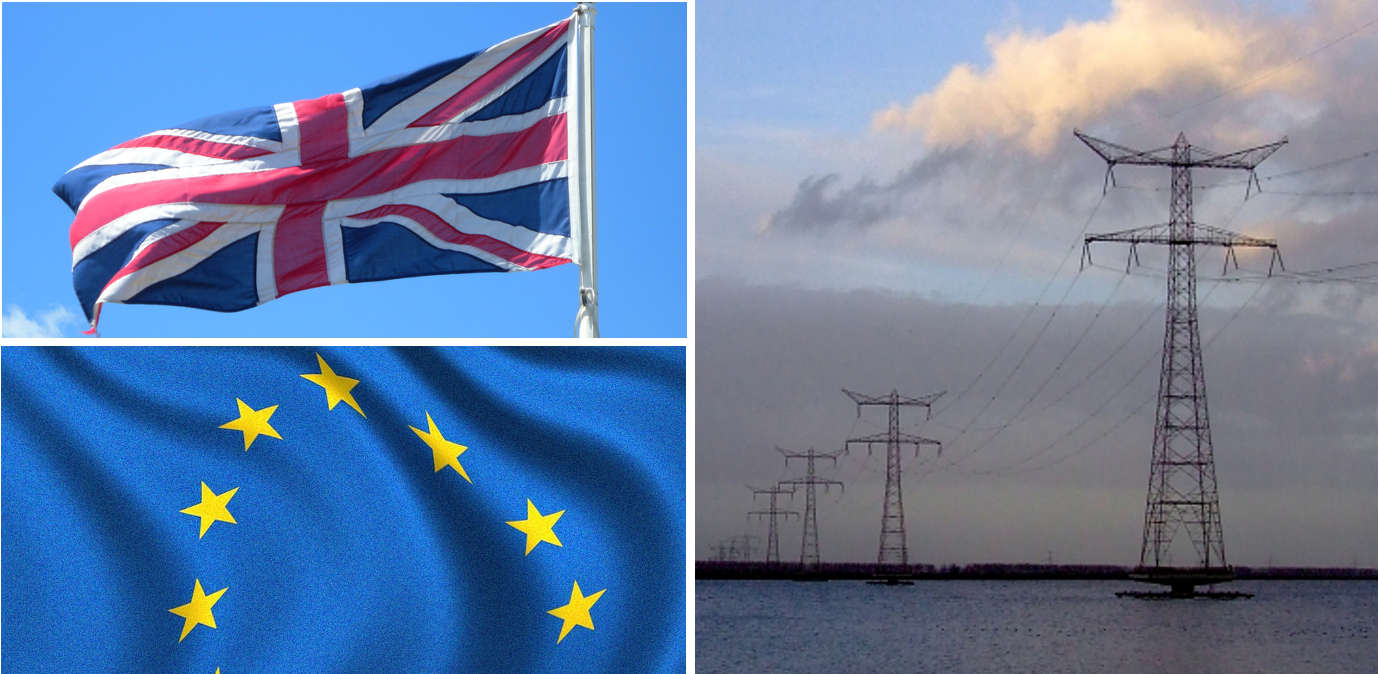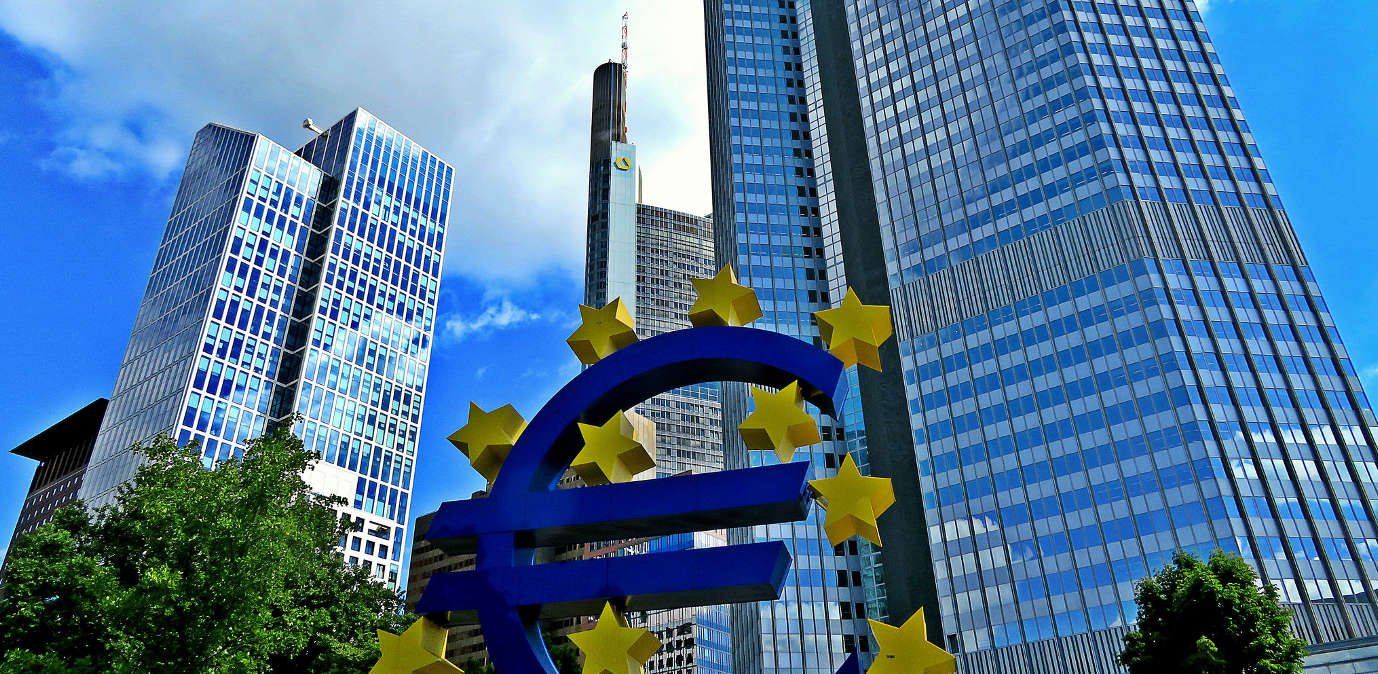In the run-up to last Thursday’s EU referendum, policy direction, announcements and news flow dried up as the politicians became increasingly consumed with the debate. Following the tumultuous decision taken by the British people, this piece considers the in-tray that the Government - above all, DECC, but in addition other parts of Whitehall - needs to return to on energy and climate matters.
Out of the low growth trap: the limits of central bank power in boosting economic output
Written by Inline Policy on 06 Jun 2016
Last week’s gloomy Global Economic Outlook from the Organisation for Economic Co-operation and Development (the OECD) raises further questions on the degree of reliance placed by policymakers on monetary policy as an engine to boost output in a low growth, ultra-low inflation, economic environment. Markit Economics’ recent study of combined PMI indicators for the UK and the Eurozone indicated growth in the second quarter of 2016 of 0.2% and 0.3% in each respective market. The OECD downgraded the forecast for UK GDP growth in 2016 to 1.7%.
What would Brexit mean for the investment climate in the financial sector?
Written by Inline Policy on 13 May 2016
With just six weeks left to go, the battle over the UK’s continued membership of the European Union is rising in volume and intensity. A key issue for investors in UK-traded financial services products and markets is undoubtedly what effects the decision made on June 23 will have on the climate for purchasing or retaining bonds, equities or other assets linked to either the performance of sterling or the stock market. Ultimately these are reflections on the underlying health of the UK economy itself, and the likely economic temperature if the UK stays within or leaves the Single Market, both in the short term and medium-to-long term.
The Single Rulebook and why it matters for financial services in the UK
Written by Inline Policy on 27 Apr 2016
One of the key policy responses to the financial crisis which led to the Great Recession was the subsequent action taken by EU Heads of Government through the European Council in June 2009 to strengthen the regulatory system governing all financial services providers within the Single Market area. In establishing a new European Banking Authority (EBA), within a European System of Financial Supervisors, which could take decisions on the basis of majority voting, member states also adopted a trio of regulations applicable throughout the Single Market – known together as the Single Rulebook.
Short-term tourist accommodation - 10 points for inclusion in the European Commission’s sharing economy guidelines
Written by Shomik Panda on 21 Apr 2016
The European Commission will soon publish a set of best practice guidelines for the regulation of the sharing economy. The purpose is to support the growth of this emerging sector and also to address any regulatory imbalances that have emerged across Europe in the context of the single market. The guidance will also outline how existing EU regulations should be applied to the sharing economy and consider international best practice. While there are many silos to the sharing economy that will need separate investigation, this article focuses on a key, growing sector – short-term accommodation rentals – and identifies a set of principles that the Commission should consider including in its guidelines.
Does the EU ETS need reviving, again?
Written by Inline Policy on 12 Apr 2016
Boom and Bust
The EU Emissions Trading System (EU ETS) has been up and down a rollercoaster over the last decade. Launched with considerable optimism in 2005 as one of the European Union’s prime policy instruments for tackling climate change by placing a price on greenhouse gas emissions, it has since gone through what can be most appropriately termed a “boom and bust” cycle.
At the end of Phase I in 2007, the price of an EUA effectively hit zero, as there was no provision to carry Phase I EUAs into the second phase.
Race to the tape in EU Referendum means investors need answers on implications now
Written by Inline Policy on 06 Apr 2016
Referendums are transformative events. Governments may come and go, but a decision to stay in or leave an economic union like the EU is an irrevocable judgement on the nation’s destiny – the most important decision in the lifetimes of voters in the UK. The implications will affect everything from the regulation of the air we breathe to the pensions we invest in. For the financial services sector, the general investment climate in the UK, as well as the contours of central bank policy on the equity banks must retain as capital buffers will be shaped by the outcome on June 23.
16 for ’16: climate and energy issues to track this year
Written by Inline Policy on 07 Jan 2016
2015 was a significant year for climate and energy policy and markets: from the momentous Paris agreement to Obama’s continuing push on the Clean Power Plan; from the new British Government’s fresh (and controversial) energy approach to, at last, some stability for the EU Emissions Trading System (ETS), which may have real implications for the longer-term.
Regulation and policy take centre stage at TCT 3D printing show
Written by Inline Policy on 02 Nov 2015
According to recent research by management consultancy A.T. Kearney, the global market for 3D printing is set to grow from $4.5 billion today to $17.2 billion by 2020. With this rapid growth will come added scrutiny from policy makers and regulators. To support its long term growth, and for the industry to fulfil its remarkable potential, a supportive regulatory and policy framework will be critical. To help build this framework, and to put in place policies that will stimulate industry growth and accelerate the uptake of 3D printing technology across the economy, it will be imperative for industry associations to play their part and to engage with key policy makers and regulators.
Capital Markets Union – What Does It Mean For The Fintech Industry?
Written by Inline Policy on 01 Oct 2015
On a day when the entire financial services industry in the UK and in Continental Europe dissected the long-awaited – albeit leaked – European Commission Action Plan on Capital Markets Union, a few eyebrows were raised about some potential implications for the fintech community. Regulators at national and supranational level are still pondering over an optimal regulatory framework to promote the fintech industry whilst at the same time ensuring adequate consumer protection; but not necessarily on a like-for-like basis with the established providers, who are already beginning to use the ‘level playing field’ argument to challenge the disruptors.
Is the EU ETS back on its feet?
Written by Inline Policy on 07 Aug 2015
The EU Emissions Trading Scheme (ETS), the EU’s flagship climate policy instrument aimed at reducing greenhouse gas emissions at least economic cost and incentivising investment in the low-carbon economy, has been back in the news - for once in a positive sense.
Paving the way for a 'circular economy' in Europe
Written by Inline Policy on 10 Jul 2015
In a speech at the European Parliament plenary debate on Monday 6th July, First Vice-President of the European Commission, Frans Timmermans, said that the Commission “remains strongly committed” to present a circular economy package towards the end of this year. The reasons are quite simple: Vice-President Katainen, Commissioner Vella, Commissioner Bienkowska, and others, essentially believe that the new circular economy package can bring:
Capital Markets Union – a new framework for diversification
Written by Inline Policy on 26 Jun 2015
In February of this year, the European Commission unveiled its Green Paper for ‘Building a Capital Markets Union’. Over the coming five years it will be the flagship project for the Directorate General responsible for Financial Stability, Financial Services and Capital Markets Union (DG FISMA). The Green Paper clearly states that the European Commission’s objective is to stimulate economic growth, largely through simpler access to capital markets, which will diversify the sources of SME financing and in turn support their growth. So what does the Capital Markets Union (CMU) mean for new innovative and a high growth companies? How does the CMU plan address their many concerns whilst also building on their many achievements?
Europe considers investment-based crowdfunding regulation
Written by Inline Policy on 16 Jan 2015
Crowdfunding is now considered a legitimate alternative form of finance for businesses across Europe. The sector continues to grow and shows no signs of slowing down. Investment-based (or equity) crowdfunding is no exception – according to a recent report by NESTA, this form of crowdfunding grew by 201 per cent in 2014.
European Energy & Climate Policy: Time To Get Moving
Written by Inline Policy on 13 Jan 2015
If last autumn was the settling-in period, the New Year is the time for the new European Commission to get moving on its priorities. The European Parliament elected last May has now bedded in, the Committees have established a work programme, and the parliamentarians will be keen to start making an impact on policy-making and regulatory measures. The next few months are therefore likely to see a lot of activity. As energy policy - and its multiple linkages with the wider European economy - has already been highlighted by Juncker and his senior lieutenants as one of the most important issues on the agenda, Commission officials in DG Clima and DG Energy are going to be busy, as will the ENVI (Environment) and ITRE (Industry, Trade and Energy) Committees in the Parliament. This piece analyses the key themes and what may merge in terms of concrete policy or legislative proposals.
 Insights from Inline Policy listing page
Insights from Inline Policy listing page













